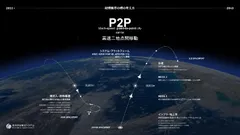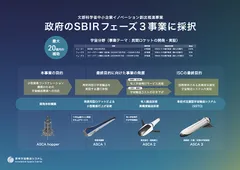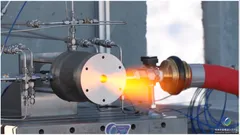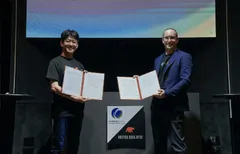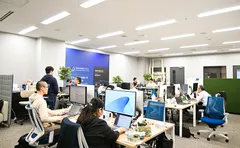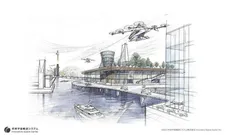Aiming to realize a transportation system that enables space travel Future Space Transportation Systems, Inc. President and CEO Kojiro Hatada and Chief Researcher Naoyoshi Shoyama Interview with Mr. Kojiro Hatada, President and CEO, and Mr. Naoyoshi Shoyama, Chief Researcher, of Future Space Transportation Systems Corporation
The company is now accepting advance reservations (questionnaires) for space travel, with the goal of starting service in the 2040s! We asked them about their business history, business strategy, and other prospects.
東京都企業立地相談センター
The Tokyo Metropolitan Government's Consultation Center for New Business Location conducted an interview with Mr. Kojiro Hatada, President and CEO, and Mr. Naoyoshi Shoyama, Chief Researcher, of Future Space Transportation Systems Corporation (located in Chuo-ku, Tokyo), which aims to realize a transportation system that will make space travel possible. The interview was published on July 10, 2024 on the website of the Tokyo Metropolitan Corporate Location Consultation Center.
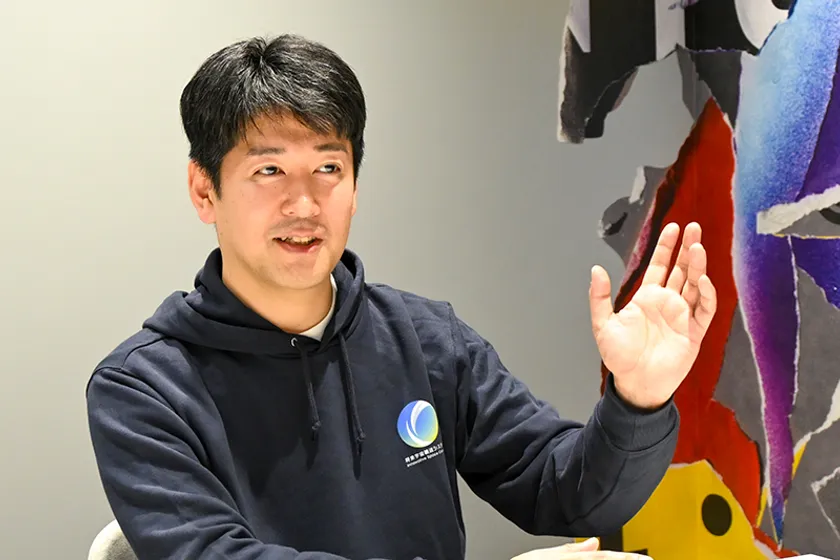
Mr. Kojiro Hatada, President and CEO
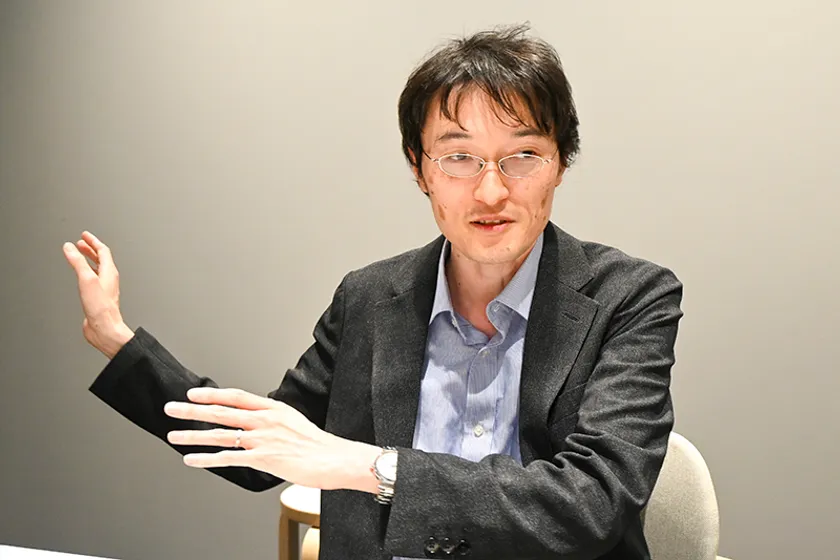
Naoyoshi Shoyama, Chief Researcher
Creating a next-generation space transportation business by maximizing the use of Japanese technology
The world where people and cargo are delivered every day. "We are committed to creating a world where people and cargo are delivered every day, even in space. The company aims to realize a transportation system that enables space travel based on the vision, "A world where people and cargo can be delivered every day. The company is a start-up company that is pursuing innovative research and development as a leader in the fast-growing space business.
We interviewed Mr. Kojiro Hatada, President and CEO, and Mr. Naoyoshi Shoyama, Chief Researcher, about the background of the company's founding, its business strategy, and future prospects.
Starting out as a civil servant, Hatata's vision was to "create a space industry in Japan with the power of venture capital.
In May 2022, Mr. Hatada will launch a future space transportation system. We asked him about the background of his start-up.
I am not an engineer. I used to work for the Ministry of Economy, Trade, and Industry (METI) as a government official, where I was involved in energy and industrial policy. In the past, the national government set out a vision, and companies joined forces to achieve their goals, but now the focus has shifted to the players who are trying to create new industries. I have been working in this environment for more than 10 years, but I was gradually becoming frustrated, and I decided to become a player myself and create the space industry.
The company name in Chinese characters, which is unusual in the space industry, was taken from the name of a study group within the Ministry of Education, Culture, Sports, Science and Technology called the "Study Group for a Roadmap to Realize an Innovative Future Space Transportation System.
The main character of the space industry, especially in the U.S., has now been replaced by venture companies, and it has become commonplace to use space as a business. In the MEXT's study group, there was a discussion that we should use the power of venture companies to solve future space transportation together, and that is our business strategy as it is.
Mr. Shoyama, the chief researcher, and his colleagues who are aiming for space development have gathered one after another, and now there are 43 employees and about 70 members including outsourcing and dispatch workers.
I was attracted by the fact that I could be involved in new developments from the very beginning. That is what attracted me. There are many people who have changed careers from other industries to pursue space development, and there are also many seniors who have retired from heavy industry and have come to us because they want to pass on their knowledge to the younger generation.
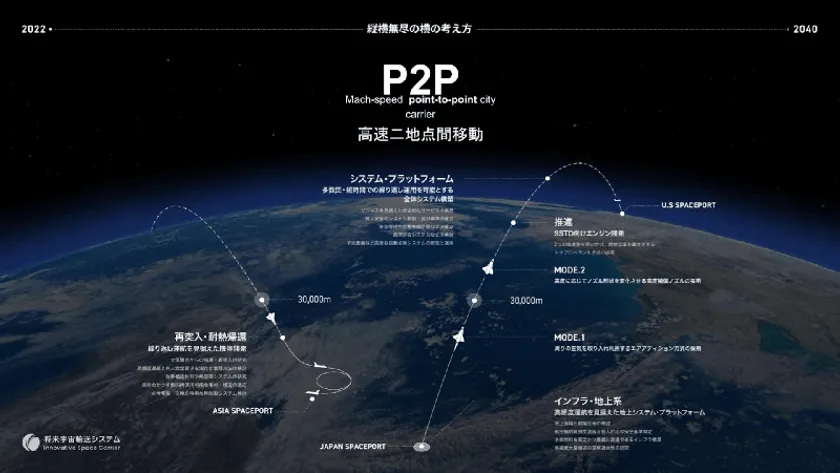
Conceptual diagram of "P2P," the company's high-speed transportation between two continents via outer space. If realized, it will be possible to travel anywhere on earth in less than 90 minutes.
Accelerating the realization of goals by increasing the number of collaborative partners through agile development
As the first step toward realizing a transportation system that enables space travel, the company has set a challenging goal of developing a reusable rocket within the next five years. To achieve this goal, a dynamic development strategy and partnerships are essential.
We are working to create a stable service as quickly as possible in cooperation with Japanese heavy industry manufacturers and overseas companies with excellent technology. As a development strategy, we are challenging agile-type development using our own development platform. Our policy is to increase the number of collaborative partners by making progress every year and showing the results, such as flying a smaller model this year, improving performance based on that data, and flying a larger model next year.
In April 2024, the "ASCA 1 Project," a reusable rocket development project involving collaboration between Japanese and U.S. private companies, will be launched in cooperation with an American rocket engine development company. In March, MHI also signed a partnership agreement with Minamisoma City in Fukushima Prefecture, marking the start of the company's first partnership with a local government.
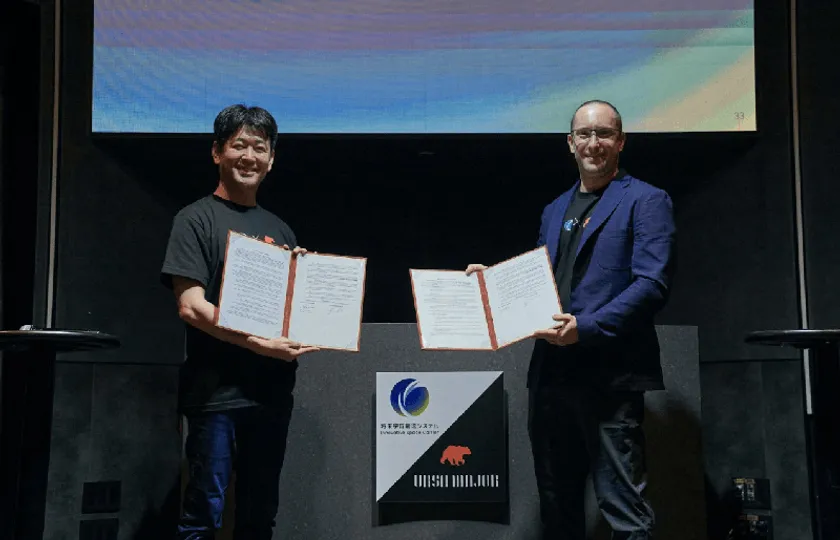
On April 4, 2024, MHI announced a partnership with Ursa Major Technologies, an American rocket engine developer. A local subsidiary was also established.
Advantages of the Tokyo Location: Concentration of diverse players is advantageous for exchange and co-creation, and collaboration with other regions is smooth.
In addition to its head office in Nihonbashi, Chuo-ku, Tokyo, the company has three other locations in Tokyo: a laboratory in Koto-ku, Tokyo, and a base in Ota-ku, Tokyo. We asked the company about the advantages of its Tokyo location.
Nihonbashi is the center of the space business in Japan, and with the concentration of space-related venture companies such as X-NIHONBASHI, it is easy to build connections with a wide range of players. The location is perfect as a headquarters because it is convenient to go anywhere. It is easy to communicate with collaborative partners, and the Nagoya satellite and employees who work remotely in the region have less of a burden to travel to the headquarters. In addition, the Nihonbashi area is useful for entertaining overseas partners, as it is both a cutting-edge city and has a sense of history," says Hatada.
The Aomi Lab, located in the Tokyo Metropolitan Industrial Technology Research Institute, is positioned as a base for research and development. It is very convenient because there are services in the same building that allow us to use various types of equipment, and we can also handle commissioned tests. In addition, the Odaiba area is a good environment where you can immerse yourself in research in a calm and relaxing atmosphere while still feeling that you are in the middle of Tokyo. The view of Tokyo Tower, Rainbow Bridge, and the ocean is pleasant and motivating. Another advantage is the proximity to Tokyo Big Sight. There are exhibitions of various genres, making it easy to gather information, and our collaborative partners often stop by on their business trips to the exhibitions," said Mr. Shoyama.
Finally, we asked about future prospects.
We are planning to launch the first test model we are working on around December this year. We also recently formed a working group for the next-generation spaceport. In addition to rocket launches and landings, we envision the integrated development of commercial, entertainment, and lodging facilities, and we are expanding the scope of our study to include not only land-based facilities, but also offshore facilities. An offshore facility might be able to travel along the Pacific Ocean side and launch in various locations. We are looking for members who are willing to work with us on the concept of turning the entire Japanese archipelago into a spaceport," said Hatada.
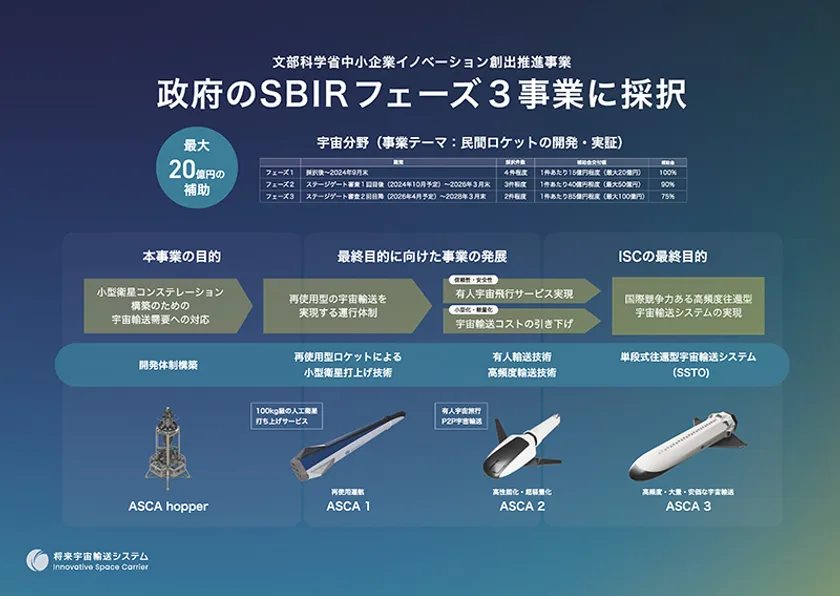
Project plan adopted by the Ministry of Education, Culture, Sports, Science and Technology's Small and Medium Enterprise Innovation Promotion Program to develop a reusable space transportation vehicle in the next five years.
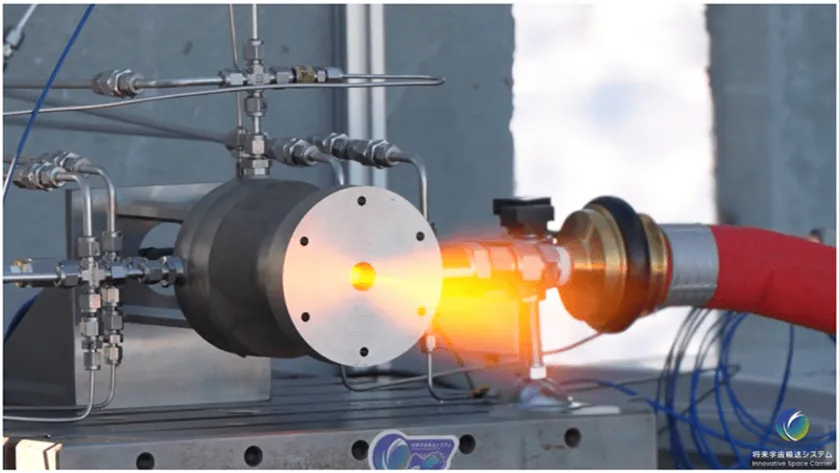
In December 2023, the company successfully conducted Japan's first combustion test of the tripropellant method.
Company Profile
Company Name: Future Space Transportation Systems, Inc.
Location : 1-4-1 Nihonbashi, Chuo-ku, Tokyo
Representative : Kojiro Hatada, President and CEO
Establishment : May 2022
Business : Planning and research for the commercialization of innovative space transportation systems
Website : https://innovative-space-carrier.co.jp/
Space Travel Special Site [Advance Reservations for Space Travel (Questionnaire)]:
https://innovative-space-carrier.co.jp/space-tour/
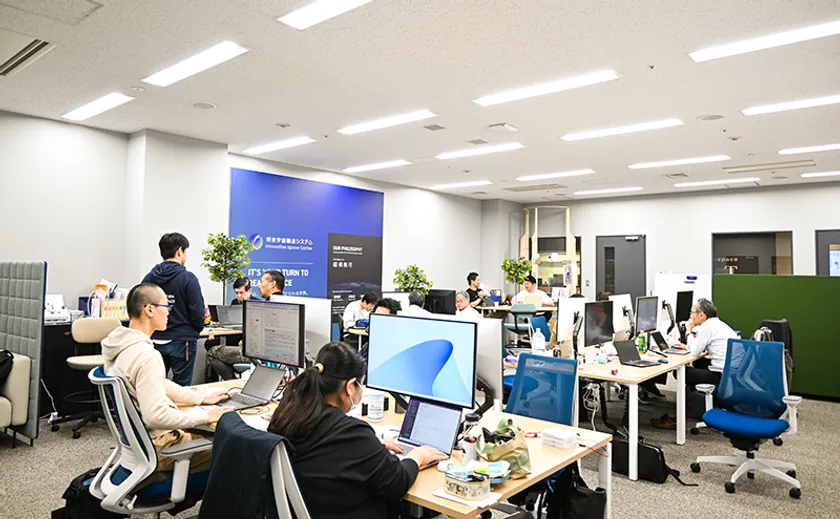
The headquarters office is located on the 5th floor of a building directly connected to Nihonbashi Station, in "THE E.A.S.T. Nihonbashi 1-chome," where startup companies gather. They just moved last fall, but it is already getting cramped.
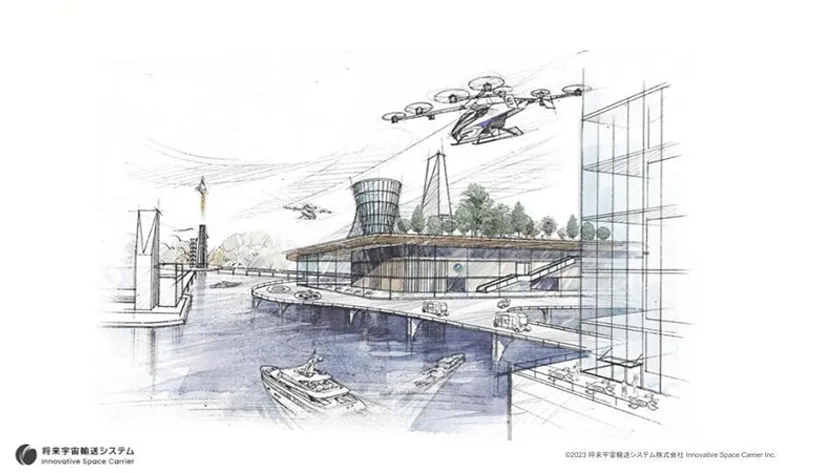
An illustration of the next-generation spaceport, which is scheduled to start recruiting working group members in April 2024 and kick off in August.
Source of information
Tokyo Metropolitan Government Corporate Location Consultation Center
Website: https://ilsc.tokyo/
What is the Tokyo Metropolitan Government's Consultation Center for New Business Location?
The Tokyo Metropolitan Corporate Location Advisory Center provides free consultation for companies and sole proprietors on finding a "location" to establish or expand their business. We will ask you about your desired conditions and make a simultaneous inquiry to private real estate businesses that handle offices, stores, factories, and business sites.
We also provide information on public property information and support systems of the Tokyo Metropolitan Government and its municipalities.
(The Tokyo Metropolitan Government's Business Location Consultation Center is operated by the Bureau of Industrial and Labor Affairs, Tokyo Metropolitan Government.)
Articles
Interviews with companies that have located and are active in Tokyo and persons in charge of corporate support at the municipalities are posted on the website of the Tokyo Metropolitan Government's Consultation Center for Investors in Business Location.
- Category:
- Other
- Genres:
- General Business Technology Economy(Japan)


